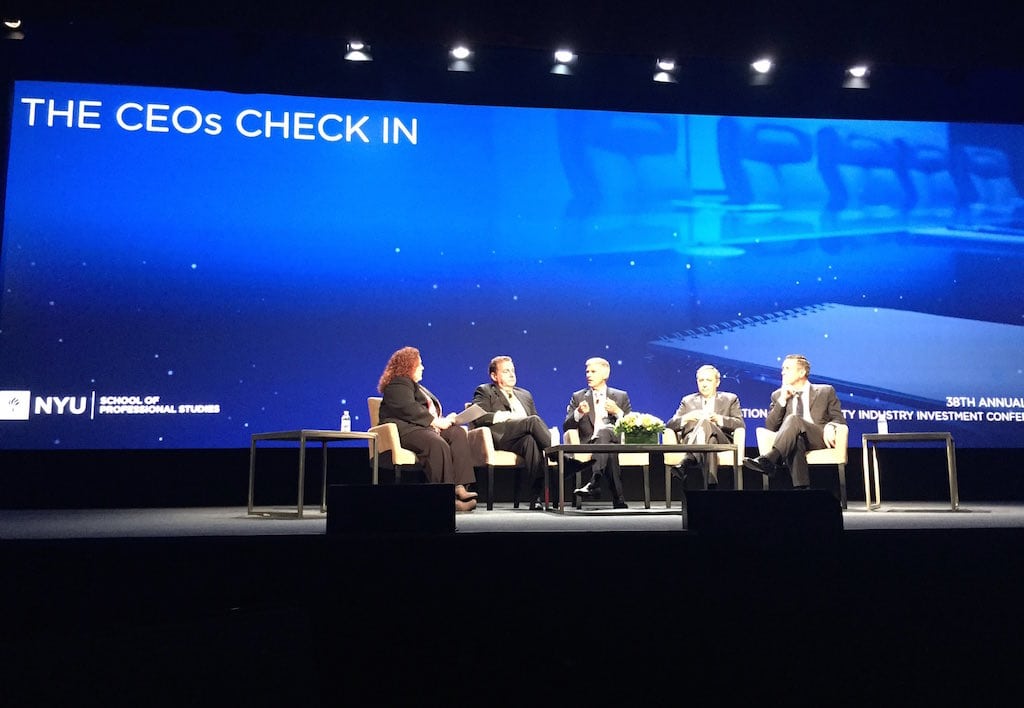CEOs of 5 Leading Hotel Brands on Their Hopes and Fears in 2016

Skift Take
The hotel industry has never had a more promising future, but terrorism, disease, and the rise of nationalism worldwide pose varying threats.
Airbnb, disease, terrorism, the TSA, Donald Trump, and the best business climate ever mark the biggest trends impacting hospitality and tourism today, according to the CEOs of Marriott International, Hilton Worldwide, InterContinental Hotels Group, Choice Hotels, and Loews Hotels, who spoke at the NYU International Hospitality Industry Investment Conference yesterday.
Christopher Nassetta, CEO of Hilton Worldwide, repeatedly attempted to put the overall state of the hotel business in a rosy perspective to provide greater context around some of the more troubling trends impacting travel in 2016.
"Forget the next quarter or two," he said. "The next five, 10, 15 years, frankly, I think the rest of our lives for everybody in this room, all things being equal, are going to be fantastic in terms of what's going to happen in travel and tourism, what's going to happen in the hotel business, and what's going to happen in terms of our growth."
Nassetta and some of the other CEOs based their healthy hotel business predictions on World Tourism Organization statistics that show international tourist arrivals billowing from 1 billion to 1.8 billion by 2030.
Equally important, they said, the growth of the global middle class, Millennial preferences for experiences over things, and Boomers' pent-up demand for travel are spurring the best possible scenario for hotel development, well, of all time.
"We are one of the largest employers and biggest businesses in the world, one of the fast growing businesses in the world, with tremendous opportunity," Nassetta continued. "Why? It's because over the last 20 years, the middle class has doubled. Over the next 20 years, every expectation is that the middle class will double again."
This is based on a global perspective, which was continually emphasized by all of the hotel CEOs, who promoted unprecedented opportunities for new hotel
